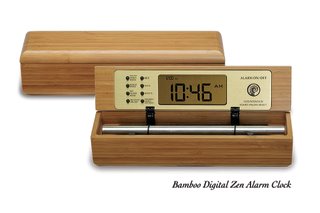
Sleeplessness
Finding yourself wide awake after a few hours of sleep, or waking often during the night is called “parasomnia” or “sleep maintenance insomnia,” and it’s much more common than people think. A 2005 National Sleep Foundation poll found that 75 percent of adults frequently have symptoms of sleep dysfunction, including waking during the night.
Just as the victims in slasher flicks make fatal errors (why are you running up the stairs?), we are often our own worst enemies when it comes to a solid night of sleep. “People think that because they’re able to fall asleep they’ll stay asleep, even if they’ve had too much caffeine,” says Rubin Naiman, Ph.D., a sleep and dream specialist at Andrew Weil’s Program in Integrative Medicine at the University of Arizona.
But for most of us, trouble sleeping isn’t usually caused by that espresso at 5 p.m. “The root of most sleep problems is stress,” says Jeffrey Thompson, director of the Center for Neuroacoustic Research and creator of an audio sleeping aid called the Delta Sleep System.
We’re overloaded, over-stimulated, and overwhelming our bodies’ ability to relax. “Our nervous system is built for a sprint, but we’re living in a stress marathon,” he says. “If you go to bed worried you’re probably going to wake up in the middle of the night,” Dr. Naiman adds. And when sleeplessness happens, as you probably know, the next day is pretty much shot.
A new generation of sleep scientists are overturning the conventional wisdom about parasomnia. (Counting sheep? Out.) The doctors say: You can do it. With a few simple changes in your routine, a little visualization, a couple of surprisingly counter-intuitive moves and perhaps an attitude adjustment, a peaceful night of slumber can be yours. Here’s their best advice:
Throw out your definition of a good night’s sleep
Just as three meals a day has given way to all-day grazing and smaller portions, “what’s good for you” has changed here, too.
“Thinking it’s necessary to stay asleep for 8 hours straight may be unrealistic,” says David Neubauer, M.D., associate director of the Johns Hopkins Sleep Disorders Center and author of Understanding Sleeplessness: Perspectives on Insomnia. “Just as we experience a dip in alertness mid-afternoon, the inverse is a dip in sleepiness in the middle of the night. There’s strong evidence that there’s a kind of awakening that’s totally normal.” History supports this take, Dr. Naiman says. “Before the industrial revolution, people had their first sleep for 3 to 4 hours, awoke for an hour or two, then slept for another 3 or 4 hours.”
Even waking every 60 to 90 minutes can be part of a healthy sleep pattern. The deeper stages of sleep, or REM (rapid eye movement) sleep, occur about every 90 minutes and get longer as the night goes on, so your brain might become more alert between those cycles.

Sleeplessness
Since we’re conditioned to think that waking during the night is a problem, when it happens, we panic. That reaction causes our brains to awaken even further, Dr. Neubauer explains.
If you find yourself awake in pre-dawn hours, Dr. Naiman advises first assessing your physical state. Do you have an ache, a cramp, or need to go to the bathroom? If so, take care of it.
If you don’t have a physical complaint, then chances are you are experiencing a normal stage of the sleep cycle. Knowing this “helps replace worries that you’ll be useless without 8 solid hours of sleep with more neutral thoughts,” suggests Sat Bir Khalsa, Ph.D., instructor in medicine at Brigham and Women’s Hospital at Harvard Medical School. “The useful thought is: ‘I can handle the disruption and still feel rested.'”
Get bed-ready
After an action-packed day (or one equally packed with worry), our brains need some time to catch up, to make order of things, and to slow their frenetic firing before we’re ready to sleep. Pure bodily exhaustion can probably get you at least that first hour of dozing, but then worries will rise to the surface and cause you to stir. How can you get your mind to chill?
“We need to learn to apply the brakes before the car is in the garage,” Dr. Naiman says. “Clearing your head is key to a good night of sleep.” Simply taking 15 minutes to sit quietly, meditate, pray, or do rhythmic breathing can allow your mind to slow down enough to sleep through the night.
Establishing any ritual that you do before bed—anything but checking your e-mail!—will do more than relax you right then and there. The repetition also conditions your brain and body for sleep, Thompson explains.
While you’re transitioning to Z-mode the same way night after night, you’re also creating a Pavlovian response to your ritual. So simply sitting in the spot where you do your breathing or turning on the shower water signals your mind that it will be sleeping soon, Thompson says.
Another way to condition yourself sleepward is by playing off the body’s internal clock. Dr. Naiman suggests simulating dusk about an hour before you plan to go to bed and dimming the lights significantly. This triggers natural circadian rhythms that help us prepare for sleep.
adapted from Women’s Health Magazine, by BY LIESA GOINS

Wake up refreshed, love your alarm clock, transform your mornings with The Zen Alarm Clock's progressive awakening with gentle chimes.